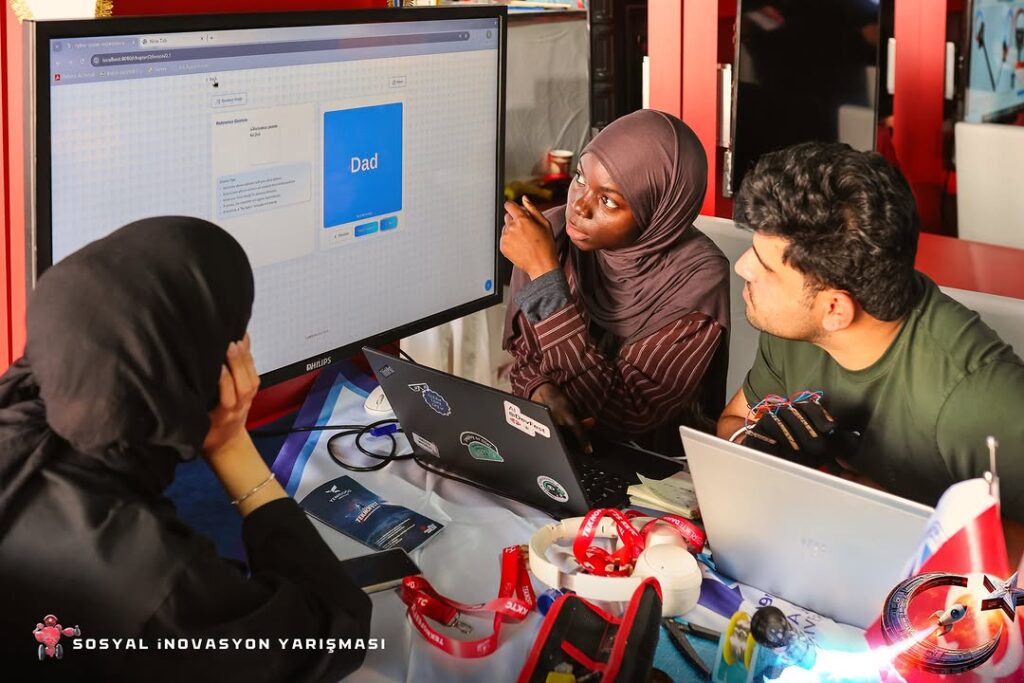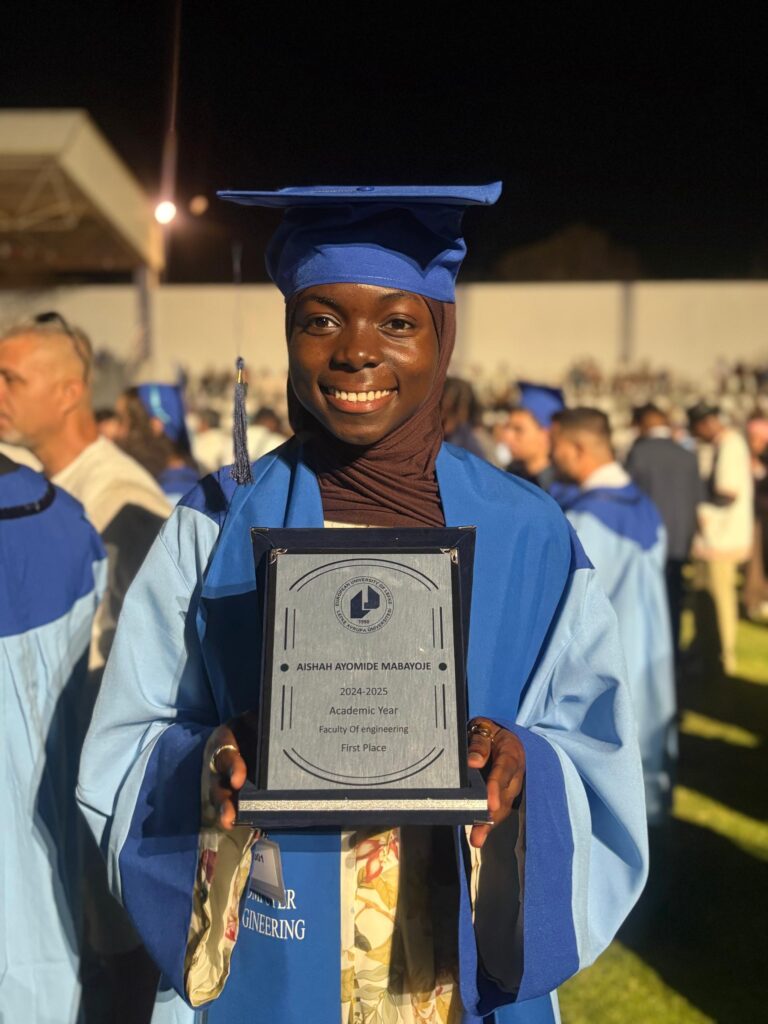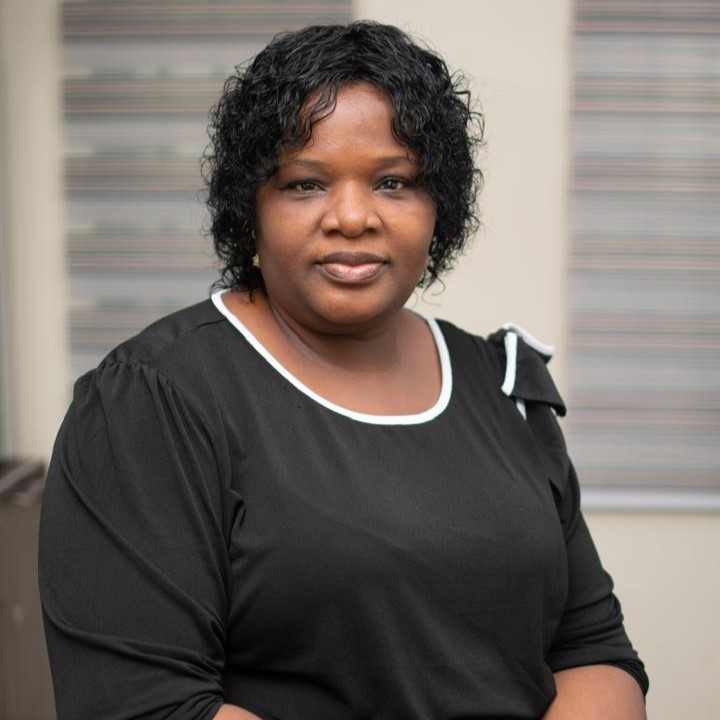At just 19, Aishah Mabayoje is already making waves in the world of technology. Graduating as the overall best student at the 2024/2025 convocation ceremony of the European University of Lefke (EUL) in northern Cyprus, the computer engineer has built AI solutions to bridge communication barriers and excelled at global tech competitions. In a chat with DevReporting, the young engineer, eldest of five siblings, shares her journey of grit, vision and why she believes young African engineers must create solutions that truly impact lives. Excerpt.
DR: On moments and influences that sparked her interest in technology and engineering:
Aishah: My interest in technology has always been there, like a quiet background hum growing louder as I grew older. My mother is a Computer Science lecturer, so from a young age, the idea that women could excel in tech wasn’t foreign to me; it was normal. But a pivotal moment came in my senior years of secondary school at Flora College, Ilorin. One of my teachers casually introduced the idea of participating in the Technovation challenge, a global competition that encourages girls to solve real world problems using technology. It came as a surprise to me; I had never thought about building a tech solution, let alone entering a global contest.
I remember the project vividly; we worked on a tool that could calculate the amount of Chlorofluorocarbons (CFCs) emitted by a household and suggest ways to reduce it. We didn’t even finish building the project, and we definitely didn’t win, but the experience stuck with me. I spent hours researching environmental science, learning how these chemicals affect the atmosphere, and tried to translate that knowledge into something functional. That process, the act of using technology to solve a problem, lit something up in me. It was the first time I felt like I could use technology not just to build cool things, but to make a real difference. That feeling has stayed with me ever since.
DR: Study habits and philosophies that helped her graduate overall best in the university:
Aishah – For me, everything begins with God. Trusting in my Lord gave me the peace and strength I needed to push through even the most challenging times. Alongside that, I live by a principle I hold very dearly: “what is worth doing at all is worth doing well.” Whether it was a small class assignment or my final year thesis, I gave it my complete attention. I also developed certain personal habits that helped me stay grounded. I try not to postpone what needs to be done. I believe in tackling tasks as they come, even when I don’t feel completely ready. But I also learned to show myself grace. If I end up postponing something, I do not waste time beating myself up over it. I simply recalibrate and move forward. Furthermore, I cannot discuss my academic journey without acknowledging my support system. My parents and siblings were my foundation. They encouraged me, prayed for me, and lifted me up on the days I felt low. Find your people and depend on them. Once you have your principles, and your people in place, hold on to them like armour.

DR: What set her team apart at the AI Hackathon and TEKNOFEST competitions:
Aishah – It was grit. Plain and simple, but not just blind grit; it was a directed, focused effort. We weren’t the most qualified team by far. But we worked hard, not necessarily to win, but to just see what we could build. As long as we put in that honest effort, it turned out to be enough. For instance, at the AI Hackathon, we were a team of three undergraduate students, all in the same class. It was exam season when we heard about the competition, and for a while, we were unsure whether we could handle the pressure of both. But something within me said we had to try. I led the team, and despite having almost no formal technical experience outside of our personal tinkering, we pulled together and built a winning project over the course of a weekend. Our project was an extension for a platform used by the host organisation, a system designed to help real estate companies make investment decisions more intelligently using AI. We focused on building a smart assistant that could analyse a proposed project and provide insights into projected costs, potential profit, and investment viability. We chose this because we genuinely believed in solving a real problem that affected businesses in our community. That weekend changed everything for me. It was a turning point.
From that experience, I was offered an internship, and that internship eventually turned into the job I hold now. What set us apart was not expertise, but hunger, focus, and the willingness to try. We didn’t go there expecting to win; we just wanted to see what we could do. That attitude, I think, was what made all the difference. Again in the TEKNOFEST we built both hardware and a website designed to bridge the communication gap between American Sign Language (ASL) users and non-ASL users. Again, this wasn’t just about showcasing technical skills; it was about addressing a real barrier that affects people’s ability to communicate and connect. From these two experiences I learned that when you combine genuine passion for solving real problems with the willingness to work hard, even when you are not the most experienced person in the room, something powerful happens.
DR: Lessons learned beyond medals and certificates:
Aishah – The competitions taught me that I am capable of far more than I often give myself credit for. They taught me that sometimes, the greatest obstacle is not a lack of skill or resources but self-doubt. They also taught me to always trust in God. I have witnessed too many moments in my life where circumstances aligned in ways I couldn’t have orchestrated. That faith grounds me. Another profound lesson is the power of teamwork. Working effectively with a team is essential. You learn to listen, to lead, to compromise, and to inspire. No one builds anything significant alone. Learning to collaborate and uplift those around you has been one of the most valuable takeaways from these experiences. Most importantly, these competitions revealed to me just how passionate I am about making a true impact, about being truly useful. I discovered that I don’t want to use my skills just for myself or to build things simply because I can. I want to create solutions that solve real problems that make life better for people. That drive to be useful, to contribute meaningfully to the world around me, has become a core part of who I am as an engineer.
DR: Challenges and rewards of working as a software engineer with FutureCast Studios and CMND.ai while still an undergraduate:
Aishah – The most challenging aspect was undoubtedly managing my time. It was challenging, but I learned to adapt and prioritise. To be honest, you can’t do it all, so I had to balance giving the necessary effort in various areas, cutting down on some activities and pursuing the ones I thought were more important and aligned with the goals I had in sight. Balancing software engineering responsibilities with school work and exams required discipline, resilience, and countless late nights. There were moments I felt stretched thin, juggling multiple deadlines while trying to give my best in all directions. But the growth that emerged from that challenge has been immense. I look back now and see a much more matured, balanced, and capable version of myself. These roles exposed me to real-world software development, allowed me to contribute to meaningful projects, and gave me a front-row seat to the intersection of AI, Extended Reality (XR), and user experience design. The confidence and skills I have gained are immeasurable, but perhaps more importantly, I learned the art of strategic focus and making intentional choices about where to invest my energy.
DR: A personal project she built that excites her the most:
Aishah –The project closest to my heart is SmartMate. Initially, it was my graduation project, but it quickly grew into something much more meaningful. Before I ever earned a salary, the only thing I could give freely was my knowledge. I loved helping friends with their studies, explaining concepts, guiding them, motivating them. That planted a seed. Then I thought, what if I could build something that could continue helping them even when I wasn’t there? So I started SmartMate, a web platform that provides AI powered academic support. It allows students to ask questions based on their own lecture notes, generates quizzes and flashcards, and offers analytics to help them track their academic progress. The goal is to make learning more personal, more accessible, and more effective. With tools powered by large language models and natural language processing, I believe we can help students build their brains, not bypass learning; and that’s a future I’m excited to be part of.
DR: How co-founding a tutoring community at the university impacted her peers:
Aishah – In my early years at the university, I realised many students needed help but didn’t always know where to get it or were hesitant to ask. Meanwhile, others like myself were more than willing to help. That disconnect sparked an idea; what if there was a structured way to bring students together, to share knowledge and support each other? That gave birth to the tutoring community. We created a platform where students could request help, offer tutoring, share resources, and connect academically. In our first month, we had over 300 members and achieved a 97 percent satisfaction rate, backed by glowing testimonials. Though I have now graduated, I fully intend to keep the initiative alive. I am currently working on transitioning leadership to a new round of executives who share the same vision, with the aim of expanding and refining the program for future students.
DR: Differences between studying technology abroad and in Nigeria:
Aishah – The differences are clear; access to resources, updated tools, collaborative environments, and a stronger emphasis on project based learning. But despite all that, I genuinely believe that my experience in Nigeria shaped who I am today. The resilience, the creativity, the hustle, Nigeria breeds a certain kind of innovator who knows how to make things work, even with little. We often speak of Nigeria’s problems, and they are real. But I want to speak to its potential. We are capable. Our youth are talented, what we need is to channel that energy with intention. To every Nigerian youth, we are the coming Nigeria. Let us each take responsibility in our corner and do the right thing. Bit by bit, change will come.
DR: Problems she hopes to solve in the next five years:
Aishah – In the next five years, I want to make meaningful contributions to the future of education through technology. My focus is on using artificial intelligence to create solutions that are ethical, helpful, and human centered. Large language models are everywhere now, and while they offer incredible potential, I worry that they are not always used effectively in learning. So, I want to work on systems that don’t just provide answers but build understanding, support curiosity, discipline, and independent thinking. That’s the future I see, one where AI enhances learning without replacing critical thought. If I can help create that, even in a small way, I will be fulfilled.
DR: Her views on the role of young African engineers in technological development:
Aishah – We are already doing so much, and I have seen incredible innovation and progress happening across the continent. Young African engineers are at the forefront of building health tech solutions, transforming education, revolutionising logistics, and proving every day that we can lead global conversations in technology. I would say we should keep building, developing, and keep pushing out solutions in our respective lanes. Each of us has a unique perspective and skill set that can contribute to the bigger picture. Whether it’s solving the water crises, addressing power shortages, breaking down educational barriers, or creating entirely new industries, we each have a role to play.
We also need to build institutions that support local talent. Incubators, communities, research labs, open-source initiatives, these are what will create a sustainable future. But most importantly, we must work together, collaborate across regions and disciplines. When we combine our individual efforts with collective action, I am sure we will make the impact needed to transform not just Africa, but contribute meaningfully to global technological advancement.
DR: Advice to young Nigerian girls aspiring to tech careers:
Aishah – I would say, do not be afraid. You are Nigerian, you are female, and you are powerful. Those identities are not obstacles, they are your strength. Fear will come, failure might come, but neither defines you. What defines you is your effort, your integrity, and your ability to keep going. Success is not a fixed destination; it is a series of brave decisions. It is trying again after a setback. It is choosing to keep learning even when no one is watching. Also, do not be afraid to define success on your own terms. For some, it’s a degree; for others, it’s building a solution that helps five people. Both are valid. So dream boldly, work hard, and lean into your purpose. You belong in tech, and we need your voice.


